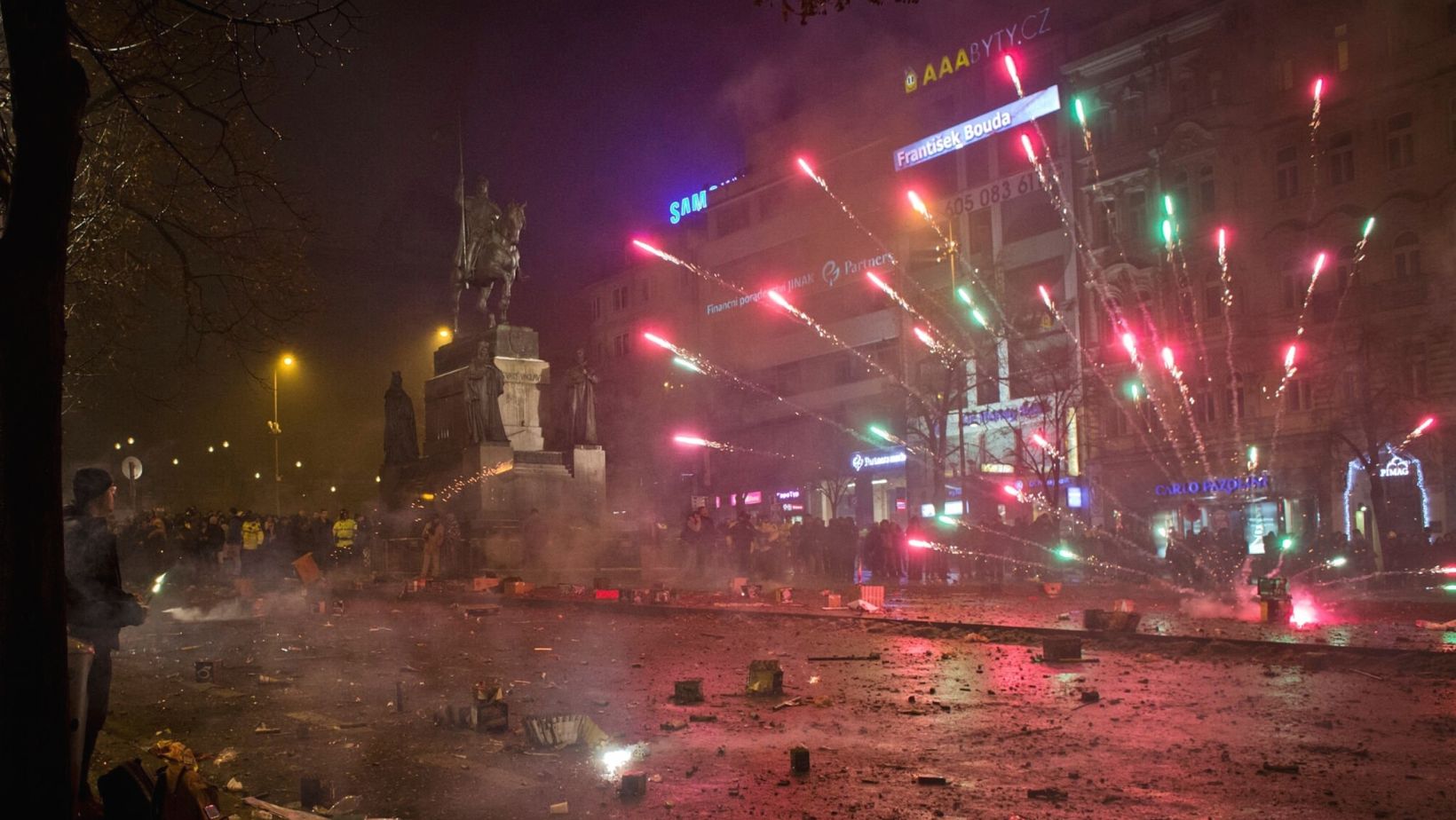Prague City Hall reminds people that a ban on fireworks in the city center, on waterways, and near hospitals remains in effect on New Year’s Eve and New Year’s Day.
Police officers will be monitoring compliance with the measure and issue on-the-spot fines or refer the case for administrative action if it is breached.
Fireworks and other pyrotechnic products can cause serious and sometimes fatal injuries. What is more, they can harm not only people but also wildlife, animals in zoos, and pets.
Those who have animals at home know that the loud noise brought about by fireworks can result in intense feelings of fear and panic. These feelings are even more extreme for stray animals who do not have a safe place to hide indoors or a loving owner to offer comfort.
In addition to this, the loud noise can further disturb patients in hospitals, the residents of nursing homes, and those who struggle with disabilities. For this reason, the Czech capital has selected several locations where the use of over-the-counter pyrotechnic products will no longer be permitted.
The decree applies exclusively in sensitive parts of Prague, especially in the city centre, on the embankments, in parks and near hospitals and other facilities such as homes for the elderly.
Furthermore, this prohibition applies on dams, dykes, in specially protected areas, nature parks, and within 250 metres of the premises of the Prague Zoo.
An interactive map is also available on the website praha.eu.
In addition, information signs have been placed in parks and on embankments around the capital. Violation of the ban is also punishable by a fine of up to CZK 100,000, which can be imposed on a natural, legal or business person in administrative proceedings, while police officers can impose a fine of up to CZK 10,000 on the spot.
Finally, it is important to note that the ban will not apply to professional fireworks as, according to the municipality, they are subject to a licensing obligation under the Pyrotechnics Act.
The City of Prague first issued this ban in December 2020, citing health and safety concerns.
Support Prague Morning!
We are proud to provide our readers from around the world with independent, and unbiased news for free.
Our dedicated team supports the local community, foreign residents and visitors of all nationalities through our website, social media and newsletter.
We appreciate that not everyone can afford to pay for our services but if you are able to, we ask you to support Prague Morning by making a contribution – no matter how small 🙂 .




